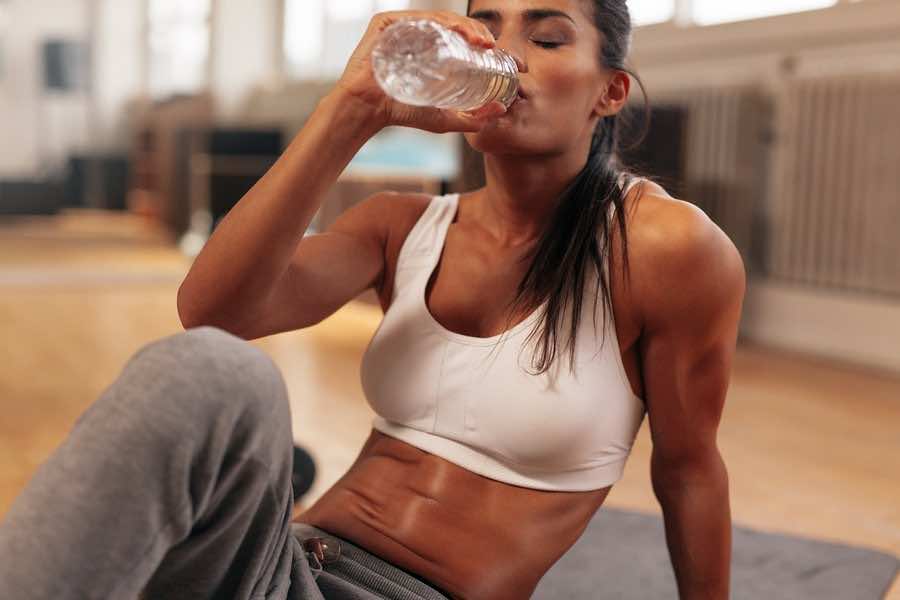
How Much Water Should You Drink A Day – Healthy Aging & The Benefits Of Drinking Water


How Much Water Should You Drink A Day – Healthy Aging & The Benefits Of Drinking Water
Have you ever been tired?
Have you ever had trouble with headaches, constipation, or skin conditions.
Maybe you felt you needed more food, different food, or perhaps you had an allergy to something that you ate?
The mind can play tricks with you.
The media can mislead you.
In the last 25 years I’ve observed the biggest source of energy and health problems isn’t what we people ate.
It’s with what they drank.
Or better yet what they didn’t drink.
Let me explain.
With so much focus on the foods that you are eating – both with the quality of nutrients you are putting into your body as well as the precise number of calories and grams of protein, carbs, and fats you’re consuming, it can be easy to overlook one critical factor driving your health.
Hydration.
When was the last time you monitored just how much you were drinking? Chances are, it’s been a while. But yet, hydration is one of the most important determinants of your overall well-being.
For more information on how hydration impacts you and exactly how much water you should be drinking a day, check out the video below.
To help you fully comprehend just how important hydration is in the grand scheme of things and with healthy aging, let’s briefly discuss the unwanted impacts that can occur when you aren’t getting enough.
The Impacts Of Dehydration
Considering the fact that 60% of your body is made up of water (with babies coming in at around 78%), it should come to no surprise that when you aren’t getting enough, you are going to be impacted.
But just how does lack of water influence your well-being?
Fatigue/Exhaustion
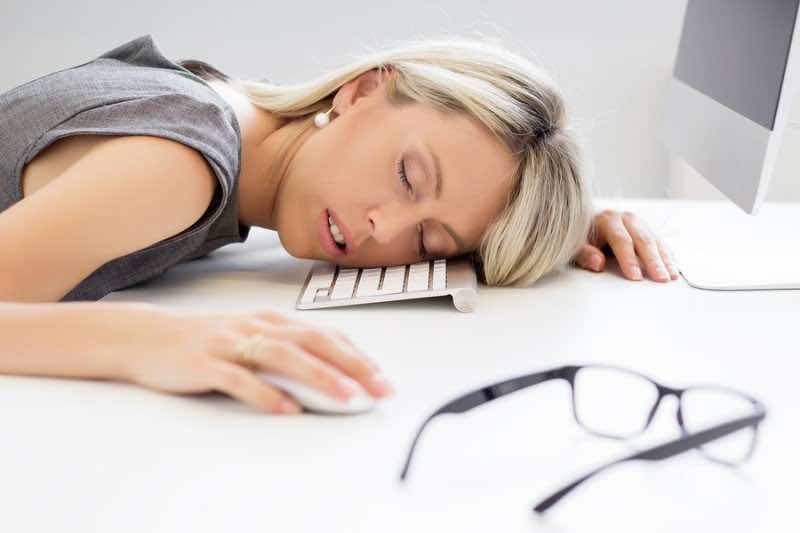
f you’re exercising, you’ll notice a sudden decrease in performance. Your strength output won’t be as great and you’ll find your endurance takes a tumble as well.
This is so much so in fact that athletes who can maintain their hydration status during exercise/play, typically outperform those who can’t, even if their skill levels aren’t matched.
Hydration matters. Especially if you are an athlete.
Even those on a day to day basis who aren’t consuming enough water may notice they start to feel fatigued more often as they go about their lives when they aren’t drinking enough.
Mental Confusion/Sluggishness
Along with physical fatigue, don’t be surprised if you start to experience mental confusion as well.
You might find that you struggle to stay focused and concentrate during the day. This is another very normal sign of dehydration.
Others may notice they feel sluggish mentally. They aren’t processing thoughts as quickly or just can’t seem to think like they normally do.
Your brain is heavily impacted by water, so when you aren’t getting enough, things just won’t feel ‘right’.
Rapid Heart Beat
As dehydration progresses along, you might start to notice that you are experiencing a rapid heartbeat.
In conjunction with this increased heartbeat, you’ll also likely notice an increase in your breathing rate as well. Both of these are serious indicators that your body is working harder than it needs to.
Low Blood Pressure
Blood pressure will also typically drop in those who are dehydrated. This is one reason why increasing fluid consumption is often recommended to those who have chronically low blood pressure.
You may only experience more noticeably low blood pressure upon standing, or if you are more severely dehydrated, you may notice the drop in blood pressure all throughout the day.
As how much fluid you’re drinking will impact how much flood is flowing through your body, if your fluid intake goes down, this means you’ll have a corresponding drop in blood volume and therefore pressure against the artery walls.
This is also closely connected to the increase in heart rate that you will experience as well.
Special Bonus: Download the 12 Week To Doubling Your Energy course for FREE and discover the top tests you should take to ensure you are on track to optimal health.
Irritability
Irritability is the next thing that most people will experience when they are suffering from a drop in hydration. You may become agitated more easily around others or frustrate very rapidly when things don’t quite go your way. As noted, if you feel ‘off’ in some way – not like your usual self, there could be more to it than you just having a bad day. You could be seriously dehydrated. 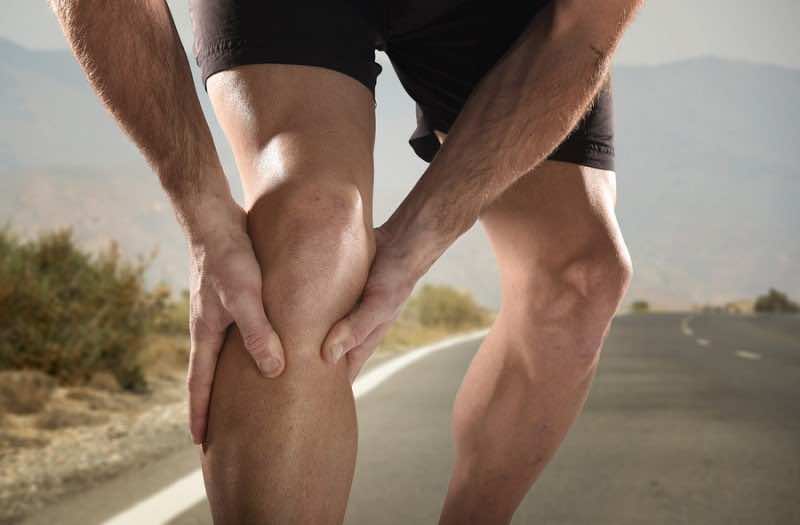 Muscle Cramping
Muscle Cramping
Muscle cramping is also quite likely when you are experiencing issues with dehydration. This impacts both those who are athletic and/or are exercising, as well as those who are just going about their daily lives.
Clearly the athletic population will notice this more and be more impacted, however you can get cramps doing just about anything in a dehydrated state.
Calf cramps are especially likely if you’ve been sitting for a while, so this could happen right while you’re working at your desk.
So as you can see, hydration can lead to a number of unwanted side effects. And, keep in mind that these are just the minor side effects that can occur.
If dehydration progresses and is not remedied, it can become fatal.
What are the signs and symptoms to watch for that would indicate you are becoming dehydrated?
Catching it early is half the battle. If you can catch dehydration before it gets too severe, it’s easy to remedy. Even better, you want to strive to prevent it in the first place.
Here are the signs to watch for that would indicate you could be possibly becoming dehydrated.
• Your mouth feels dry and sticky
• You’re suffering from exhaustion or a feeling of malaise
• Your skin has become drier than usual
• Your head is pounding
• You aren’t passing regular bowel movements
• You’re suffering from muscular cramps and/or weakness
• Your eyes look sunken in
• Your blood pressure is dropping
• Your urine is very brightly colored and doesn’t have much volume to it
Do self-checks regularly to watch for these symptoms. If they are occurring, that is a sign you are already in a dehydrated state.
Hydration Around Exercise
Of particular importance when speaking about hydration is hydration around exercise. Exercise presents a more complicated issue for hydration because your sweat rate is going to increase and your body is going to lose more water than normal. Add to the fact that you need to be hydrated now more than ever and it’s vital that you are doing things correctly.
Check It Out: Download the 12 Week To Doubling Your Energy course for FREE and learn the best way to get and stay motivated for your workout sessions.
When considering hydration during exercise, there are a few key guidelines that you’ll want to follow.
- Get hydrated going in
First things first, never go into an exercise session in a dehydrated state. Do that and you’re only asking for poor performance and bad outcomes.
You should be drinking 2-4 cups of water in the couple hours leading up to exercise.
If you are already taking steps to ensure you are adequately hydrated during the day, you may not need to drink quite this much however if you feel you could be on the verge of hydration, lean towards the higher end of that scale.
Start drinking this early on before the session to ensure that your body has sufficient time to process the fluid and shuttle it towards the muscle tissues where it’s needed.
- Hydrate while you are exercising
Next, you also need to hydrate while you are exercising. While if you are doing a relatively easy to moderate paced workout lasting 20-30 minutes this won’t be too big of an issue, if you are exercising for over an hour and especially at a more intense pace, you must be hydrating.
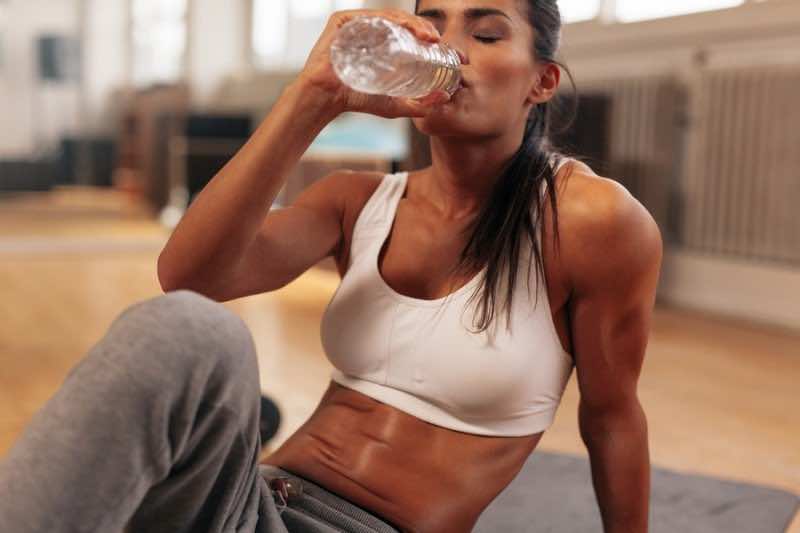
If you happen to be exercising in a hot environment, count on hydrating even more than normal as well. The increased temperature will accelerate your sweat rate, making you lose more water than normal.
As a good general guideline, you’ll want to consume around one cup of fluid for every 15 minutes or so that you are engaging in intense exercise. If in a hot environment, try for one and a half cups or two cups every 20 minutes.
Note that if you are planning on exercising for longer than an hour, at that point you can look into electrolyte replacement beverages.
At this point you may be sweating out higher volumes of sodium, throwing off the natural balance of sodium and potassium you have to maintain in order to continue with your intense exercise protocol.
Do keep in mind though that many of these beverages contain added sugars, which you want to stay away from. Consider a sugar free variety (if you can find one without a high dose of artificial sweeteners as well), or opt for preparing your own instead.
- Re-hydrate after exercise is finished
Finally, after exercise is finished, then it comes time to rehydrate. If you have done a good job at hydrating yourself going into the workout and then staying hydrated as the workout gets underway, this shouldn’t require too much additional work.
For many however, who aren’t practicing good hydration strategies, now is the time they really need to drink up.
One of the best ways to figure out how much fluid to drink after exercise is to simply weigh yourself prior to exercise and then weigh yourself after you are finished.
The amount of weight you lose is a good rough guideline as to how much water you’ve lost, so you can then take steps to replace this.
You’ll want to drink 20-24 fluid ounces (3 cups) for every one pound of weight that you have lost.
Now, in the rare case that you have gained weight, take note that you may be overhydrating.
Some individuals, especially if they are exercising in hot climates, which tends to make people thirstier, drink too much.
This can be just as dangerous as not drinking enough, so be careful. If you over consume water, it can also mean throwing off the electrolytes in your body, which can result in weakness, confusion, and potentially also cause you to pass out.
If you happen to be performing exercise in water (swimming), you’ll also want to make note of your hydration as well.
Usually people will not drink while swimming as water bottles are not handy and they don’t notice themselves sweating as they are in the water.
You are sweating however, make no mistake about that. As such, it’s still going to be very important that you are replacing the fluid that you lost.
Follow the same principles during swimming as you did during any other exercise.
Seem like a lot to take in?
Don’t worry. Once you start paying attention to your hydration status, making a conscious effort to get in more water, it’ll get easier from there.
Soon, it’ll become second nature to be drinking as much as you need and you won’t need to give any further thoughts to it.
Let’s now go over 10 tips to know about that will help with getting your water in.
10 Tips For Getting Your Water In
Just as you need to plan to get your meals in throughout the day, you also need to play to stay on top of your hydration as well.
Here are 10 tips to help you achieve optimal hydration balance.
- Keep A Wide Mouth Water Jar/Bottle With You As Often As Possible
If you want to make getting your water in easier, consider drinking through a wide mouth water jar or container. Mason jars tend to work especially well and make it easier to drink more water over time than tall, thin containers.
Try this trick and you might just be surprised at how much water you’re taking in.
- Set A Timer
To get into the habit of drinking more water throughout the day, consider setting a timer on your desk. Set it to go off every 30-60 minutes and when it does, take a big drink.
If you always have water sitting with you, you can easily go through 4-5 glasses of water a day this way.
- Choose Broth Based Soups As Appetizers
Here’s a quick tip: not all the water you consume has to be in the form of drinking water.
Try a broth based soup. As long as you are using low-sodium chicken or beef stock, it’s a great way to get hydrated.
And, if there’s added vegetables to this soup, it’s also an ideal way to get nutrients in.
Serve these as appetizers for your main meal or as a quick snack at any time throughout the day.
As an added benefit, if you happen to make your soup using bone broth, you’ll stand to gain even further benefits.
If you always have water sitting with you, you can easily go through 4-5 glasses of water a day this way.
- Choose Broth Based Soups As Appetizers
Here’s a quick tip: not all the water you consume has to be in the form of drinking water.
Try a broth based soup. As long as you are using low-sodium chicken or beef stock, it’s a great way to get hydrated.
And, if there’s added vegetables to this soup, it’s also an ideal way to get nutrients in.
Serve these as appetizers for your main meal or as a quick snack at any time throughout the day.
As an added benefit, if you happen to make your soup using bone broth, you’ll stand to gain even further benefits.
- Load Up On Fresh Fruits
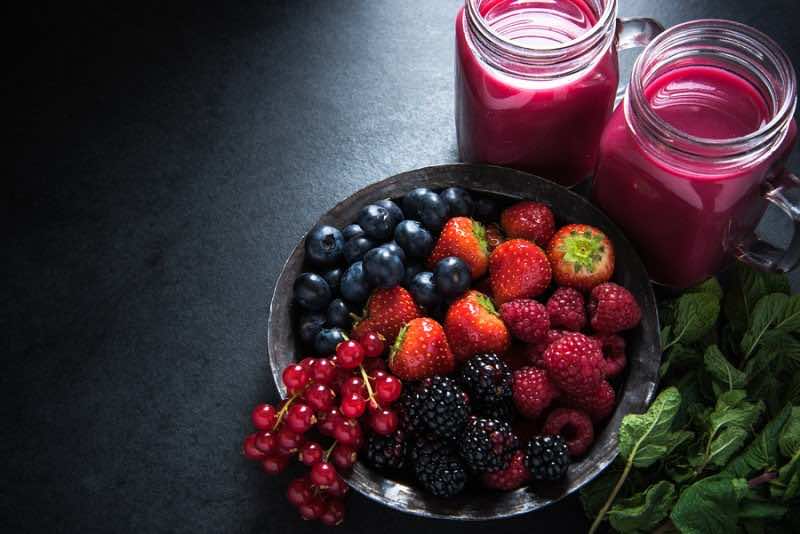
Fresh fruits are a must! Not just because they are loaded with fiber, antioxidants, and provide a number of key health benefits, but because they will contribute water to your day.
Fresh berries, apples, or grapes are all excellent for helping boost your hydration status and making it easier to get your water needs met.
As these do have calories, make sure that you are accounting for them.
Just For You: Download the 12 Week To Doubling Your Energy course for FREE and get information on the key vitamins and minerals you need to be consuming in your diet plan.
- Snack On Cucumbers
If you want an ultra-low calorie snack to help tide you over until dinner that will work overtime and also help you stay hydrated, choose cucumbers.
Cucumbers are almost entirely all water, so will hydrate your body in record time. Add a little sea salt to them if you desire or any other spices.
- Add Sliced Lemon/Lime To Your Water
Sometimes if getting in plain water is becoming a little too challenging, the best way to remedy this is to add a slice of lemon or lime to your bottle.
This will help to instantly bring a dose of flavor to the water, while also offering detoxification benefits as well.
Both lemons and limes are great for removing excess toxin build-up in the body and cleansing your system.
Furthermore, while these fruits seem to be acidic outside of the body, once you consume them, they actually become alkaline.
Therefore, they will help you keep your body’s pH balance in check.
If lemon or limes don’t quite do it for you, you can also do the same thing using orange or grapefruit slices as well, or even some fresh berries.
These will give just a hint of flavor – enough that you can turn away from other methods of adding sweetness to your beverage.
- Add Ice
While drinking water at room temperature does tend to help accelerate the hydration process because it’s absorbed faster into your body, adding ice can help you get the water down.
Some individuals simply prefer ice cold water as they find it more refreshing, so do whatever works best for you.
There is also the added benefit that your body will burn more calories if you drink ice cold water as it has to expend more energy to heat the water up.
So if weight loss is a goal of yours, that’s another reason to add a few cubes to your glass.
8. Try Herbal Teas
Alternatively, you might also try using herbal teas. These are great for increasing your hydration status and will definitely count towards your total daily water quota.
Many herbal teas can also offer additional benefits as well such as chamomile, taken before bed to help you sleep more soundly.
Just be sure if you are serving herbal teas that you are not adding sugar, honey, or other forms of sweetener that will add unwanted calories and spike blood glucose levels.
- Place Watermelon In Your Freezer
Here’s another great tasting trick that can help you get more water into your day – put some watermelon into your freezer.
If it’s a hot summer’s day and you need something to cool down, frozen watermelon is a perfect choice.
It’s low in calories. It’s high in water content. And, it’ll also offer some vitamin C, pantothenic acid, as well as copper into your day.
Just be sure to purchase seedless to make the process of eating it easier.
You can even mash this up or run it through a blender for a few seconds to make a watermelon slush.
- Add A Straw
Finally, the last quick and simple tip to make getting in your water quota easier is to add a straw.
Silly as it may sound, this will help you drink more water with each sip you take and can also make drinking the water more fun.
It’ll bring you back to your childhood days and could mean the difference between you getting enough or not.
Just do keep in mind that if you are someone who does experience gas quite easily, you’ll want to be careful with this tip as drinking through a straw can amplify gas formation.
If that’s the case, use it only when you’re really struggling to get your water in.
There you have some of the best tips to help you master your hydration. To leave you off, here a few important do’s and don’ts to remember about proper hydration.
Do’s And Don’ts Of Proper Hydration
Do be sure that you are drinking early on in the day to avoid multiple waking’s during the night to use the bathroom
- Don’t hydrate with beverages that are filled with sugar or artificial sweeteners (such as gourmet coffee,
sodas, or diet sodas) - Do consider getting an ionized water filter to ensure you are getting the absolute best water quality possible
- Don’t rely on sports drinks to fill your water quota. Most of these have added sugars and/or sugar alcohols
- Do add a little sea or Himalayan salt to your water to help increase your drive to drink
- Don’t consume too much caffeine during the day (try and omit this entirely if you can) as it will only
dehydrate you further and cause excess stress on your CNS - Don’t hydrate with alcohol. Alcohol is a toxin and will also dehydrate your body further, moving you away
from where you want to be
Keep these tips in mind and you can feel confident you are hydrating correctly.
So there you have the in’s and out’s of proper hydration and all the benefits of drinking water. Make sure that you are following this advice and not neglecting this critical piece of your wellness puzzle.
What are you best tips and tricks for getting more water into your daily diet?
Want to learn more about the key strategies you should be using to optimize your health and well-being? Be sure to check out my 12 week program where I cover all the steps you must take in order to be successful, healthy, and bio-optimized.
4 Comments
Leave a Comment
You must be logged in to post a comment.
This video was a perfect start to my day. Made me decide to water fast and I already feel a lot better 🙂 Thanks Wade
I was curious about what you said about information traveling faster in water. How exactly does that work again? Is it because the electricity generated by our thoughts travels faster through water?
Sound, electricity etc all travel through water very well. My suggestion is to watch Water the Great Mystery. The bottom line is we know enough to know that we don’t know that much…. LOL
You’re seriously a great teacher Wade. I wish I had more teachers like you back in school.
At the end of the video you talked about another video where you get more in depth about hydration and water.
Can you point me to this video I can’t seem to find it.